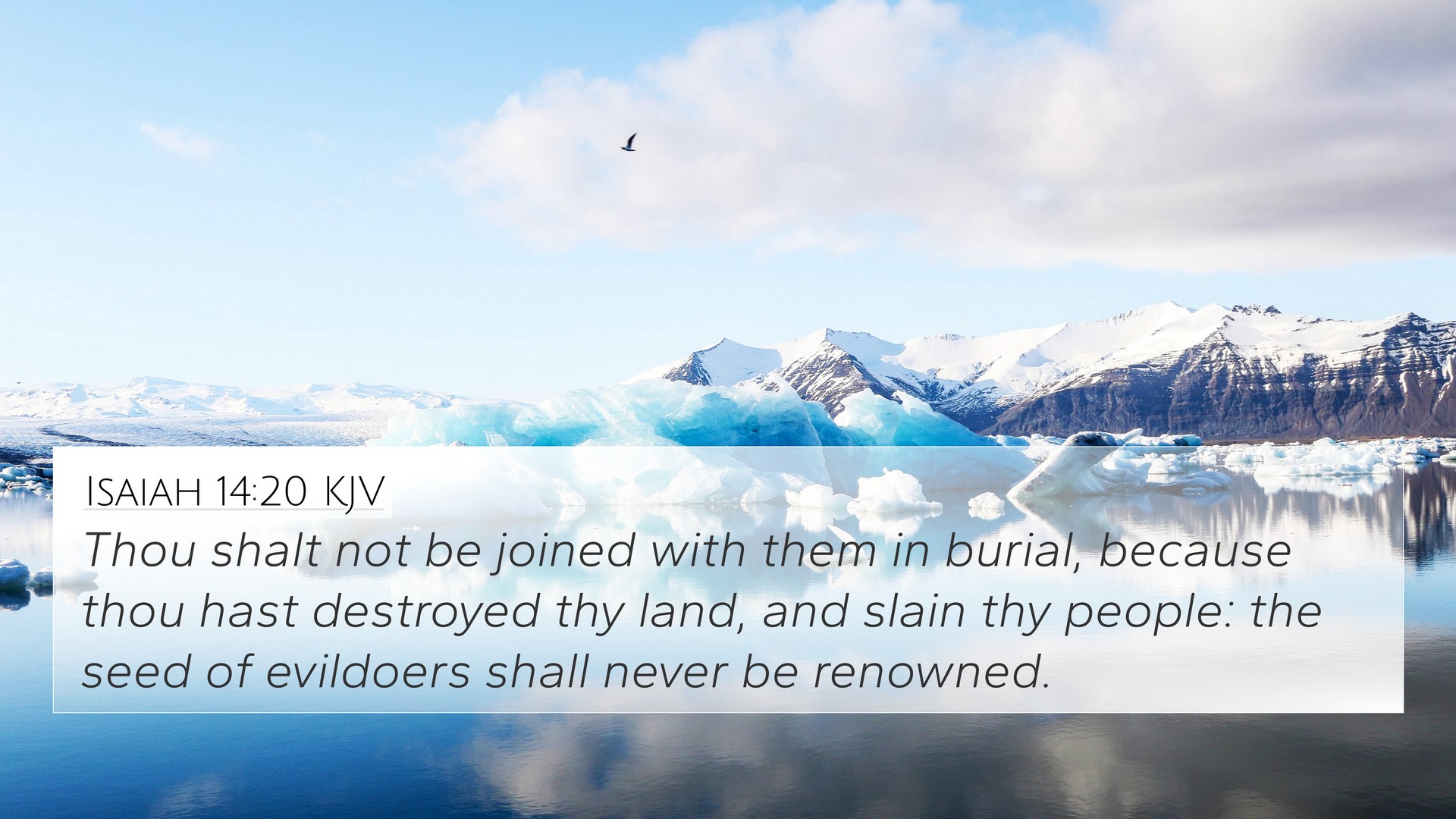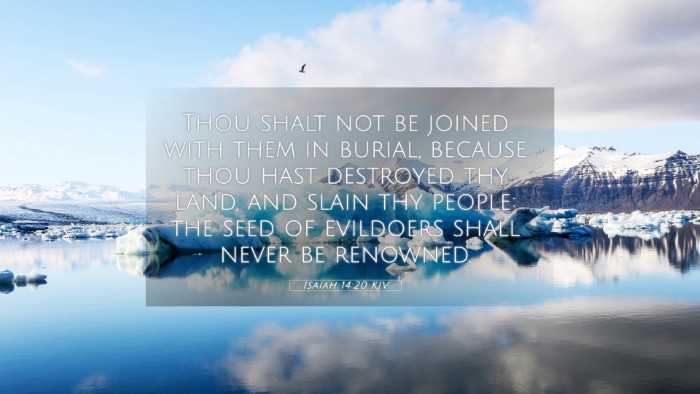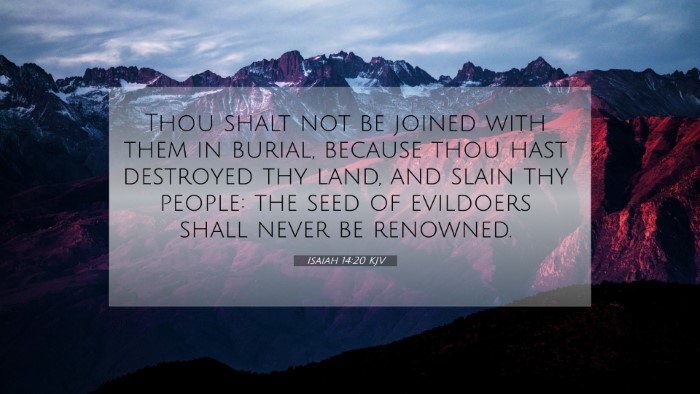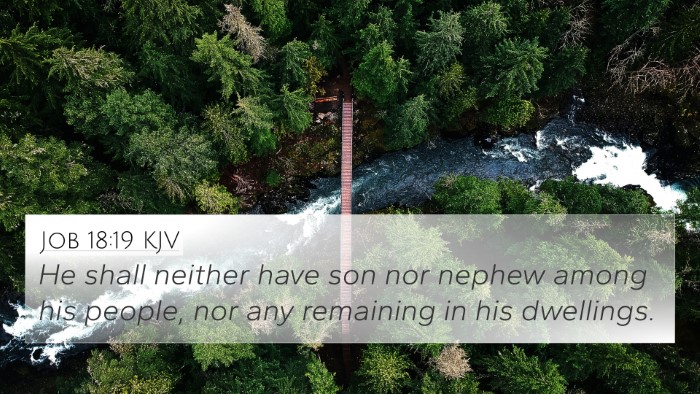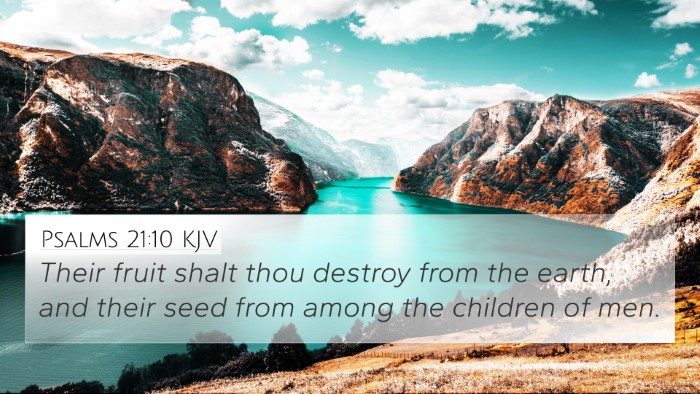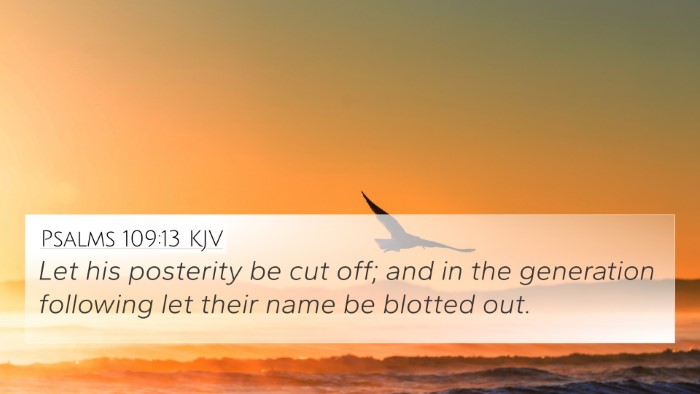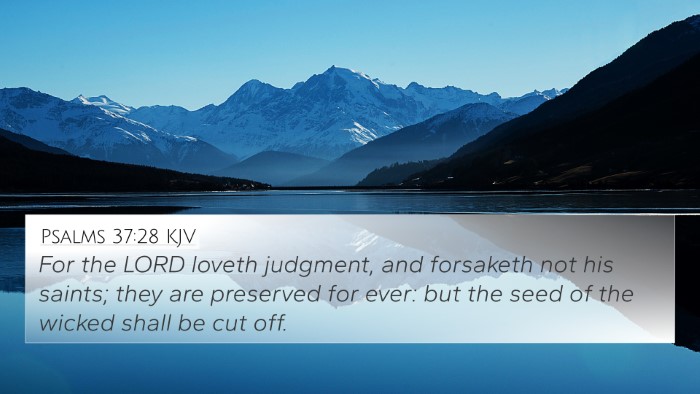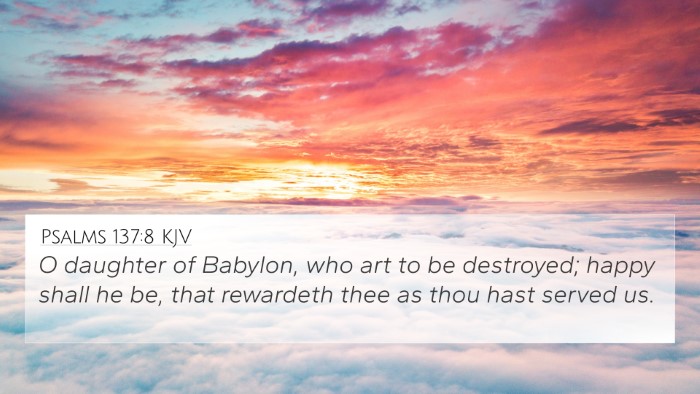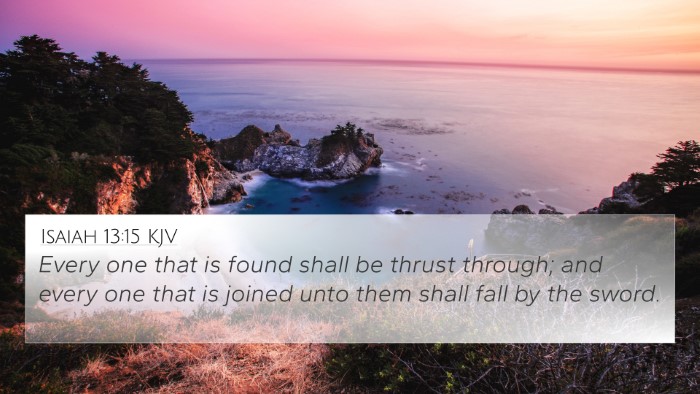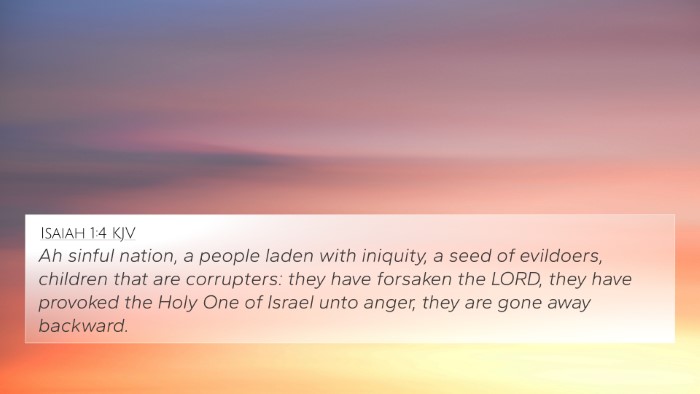Understanding Isaiah 14:20
Isaiah 14:20 states: "You will not join them in burial, for you will be thrown out like a rejected branch, for you have destroyed your land and killed your people. Let the offspring of the wicked never be mentioned again."
Summary of Verse Meaning
This verse delivers a strong message concerning judgment and the consequences of wickedness. The revelation is directed toward the oppressors of Israel, indicating that their downfall will be complete—stretching beyond their death into the dishonor of their burial. It reflects the idea that those who do great harm will ultimately face a fate devoid of dignity.
Commentary Insights
-
Matthew Henry's Commentary:
Henry emphasizes the themes of divine retribution and the irrevocable nature of God's judgment. He suggests that the verse highlights how God will completely eradicate the legacy of the wicked, making it clear there will be no posthumous respect or remembrance for those who cause desolation and death.
-
Albert Barnes' Commentary:
Barnes focuses on the metaphorical expressions used in the text. He draws attention to the “rejected branch,” which signifies ultimate rejection not only in life but in death as well. This imagery underlines the seriousness of their actions that led to their condemnation, as well as the broader implications for nations and peoples that operate under similar wickedness.
-
Adam Clarke's Commentary:
Clarke discusses the moral implications of the verse, arguing that it serves as a warning. He notes the fate of the wicked is sealed, emphasizing the inevitability of divine justice that seeks to protect the innocent and punish the wrongdoers. There is a sobering reminder within the text about the seriousness of violence and oppression.
Cross-References
Isaiah 14:20 connects with several other biblical passages that elaborate on similar themes of divine judgment and the fate of the wicked:
- Job 18:17: Highlights the complete oblivion that comes upon the wicked.
- Psalm 37:28: Affirms that God does not forsake His saints, but the wicked will be cut off.
- Proverbs 10:30: States the righteous will never be removed, but the wicked will not dwell in the land.
- Isaiah 47:14: Describes the fate of sorcerers and those who engage in wickedness, indicating their destruction.
- Jeremiah 11:22: Speaks of a similar divine judgment upon those who turn against God.
- Revelation 20:15: Contemplation on the final destiny of those not found in the Book of Life, symbolizing eternal rejection.
- Malachi 4:1: Portrays the day of judgment where the proud and wicked will be burned like stubble.
Thematic Connections
The themes of judgment, rejection, and the fate of the wicked span across both the Old and New Testaments, demonstrating consistent divine principles. This intersection can guide topical studies, including:
- The Fall of Nations: Many scriptures address how nations face judgment for their actions against God's people.
- Divine Justice: Insights into God’s unwavering commitment to righteousness reflected through the narratives of the Bible.
- Repentance and Redemption: Contrasting themes found in verses that call for humankind to turn from their wicked ways and seek God's mercy.
Conclusion
Isaiah 14:20 serves as a crucial reminder of the consequences of wickedness and the certainty of divine justice. With a careful examination of biblical cross-references, readers are encouraged to explore the interconnections of scripture and the implications of living a life aligned with God’s will.
Tools for Bible Cross-Referencing
For those wishing to delve deeper into cross-referencing biblical texts, the following resources may be helpful:
- Bible Concordance: A comprehensive index to help locate verses associated with specific words or themes.
- Bible Cross-Reference Guide: Provides a structured approach to find related verses throughout the scriptures.
- Cross-Reference Bible Study: Methods to systematically examine verses in context with each other.
Further Study Suggestions
To deepen understanding and explore connections more fully, here are some additional suggestions:
- How to find cross-references in the Bible: Familiarize yourself with Bible study tools and methodology.
- Identifying connections between Old and New Testament: Historical context enriches interpretation.
- Comparative study of Pauline epistles: Reveals recurring themes of judgment and grace.
